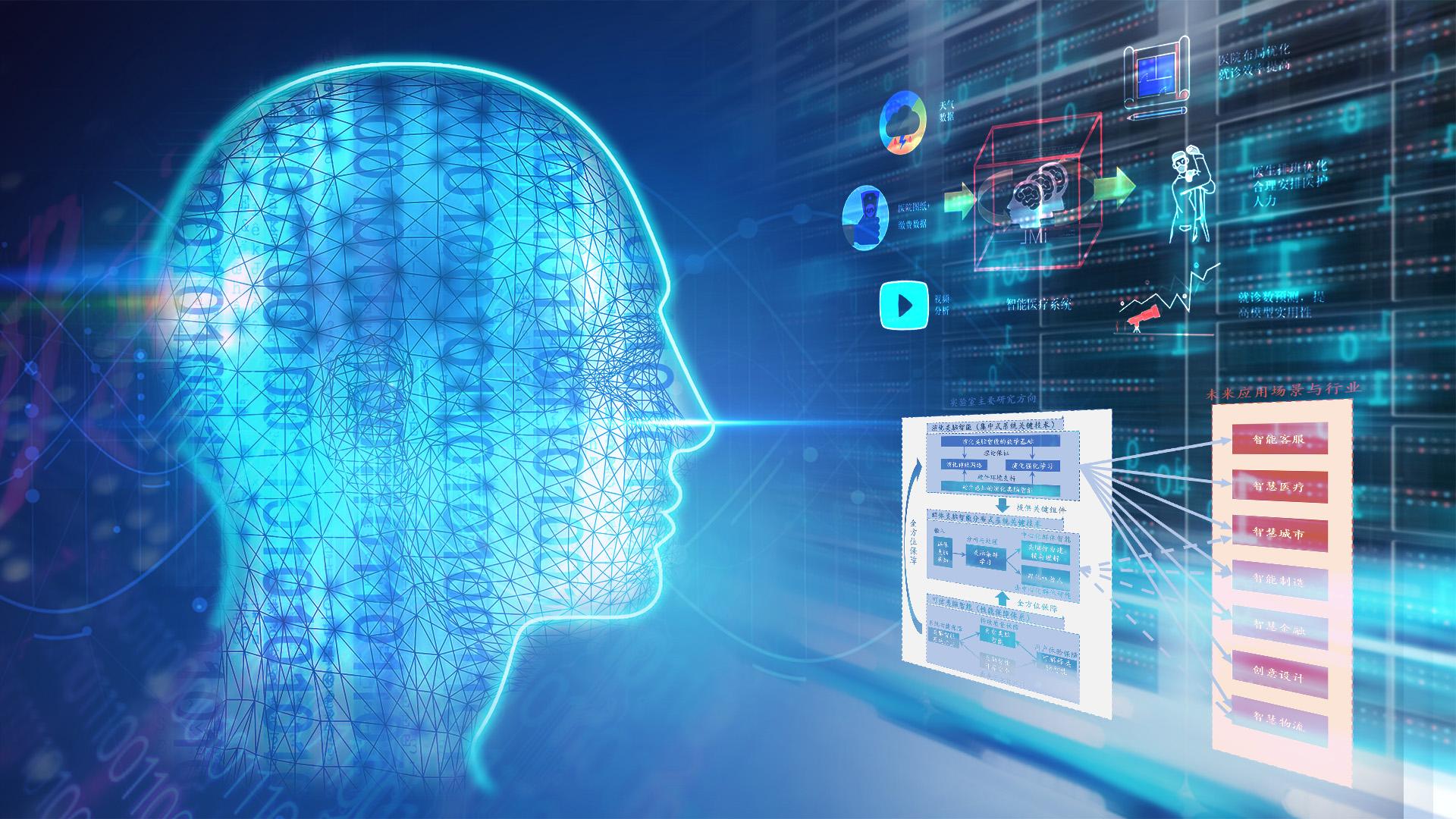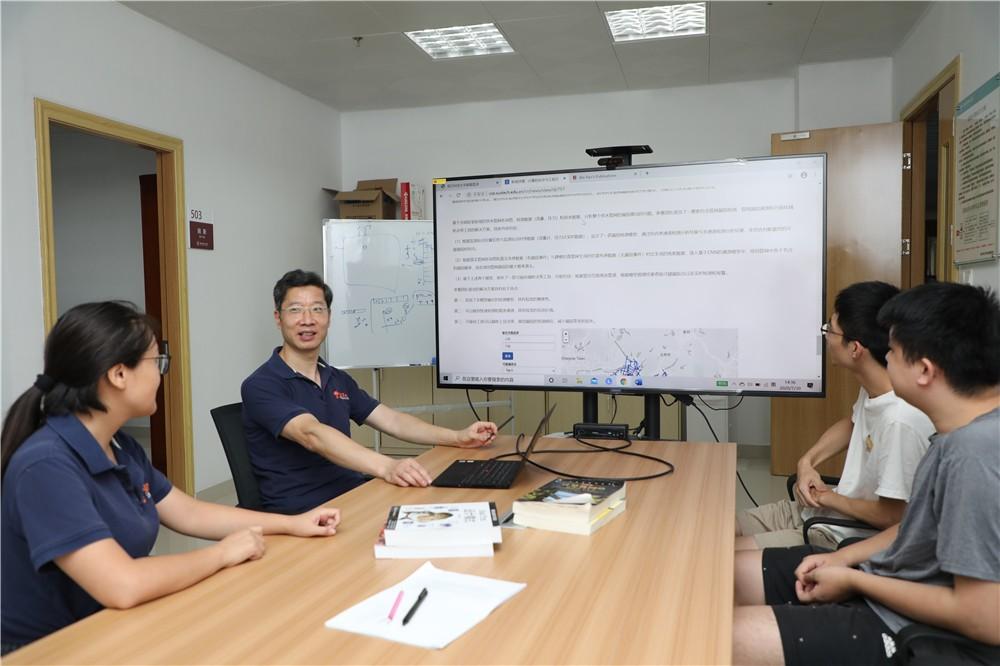Cutting-edge research at SUSTech | Unlocking the future with brain-inspired intelligent computation
Exclusive Interview with Dr. Xin YAO (Director of Guangdong Provincial Key Laboratory of Brain-inspired Intelligent Computation)
One concept of Artificial intelligence (AI) is to let machines think like humans and mimic their actions. Brain-inspired intelligent computation is the grand challenge for achieving Human-level Artificial Intelligence.
The international major AI powers are working hard on winning the race, especially in brain-inspired intelligent computation research.

As a research-intensive university in China, SUSTech has started to explore AI through the Department of Computer Science and Engineering (CSE). Since 2017, the SUSTech Artificial Intelligence Institute (SAINT), Shenzhen Key Laboratory of Computational Intelligence, and Guangdong University Key Laboratory of Evolutionary Intelligence Systems have been set up.
“Humans love to reflect and study the past as a way of trying to see the future,” said Dr. Xin YAO, SUSTech Chair Professor and CSE Founding Head. He believes that Artificial intelligence (AI) is an essential driver for the Fourth Industrial Revolution. To further advance the AI technology, scientists will ride on the growing computing power, algorithmic innovation, and data to push the fundamental research and technology development to the next higher level.
In January 2020, a Key Laboratory led by Dr. Xin YAO was approved, approved, and funded by the Guangdong provincial government. The official name is the Guangdong Provincial Key Laboratory of Brain-inspired Intelligent Computation (the Key Laboratory).
The Key Laboratory engages in fundamental research, technology development, and knowledge transfers in the broad field of evolutionary intelligent systems. It aims to make breakthroughs in AI technology, which is currently very weak in self-learning, self-evolving, and self-organization. It will explore cutting-edge research directions in swarm intelligence, the evolutionary intelligence, and trustworthy intelligent systems.
The Key Laboratory is conscious of the development across the Greater Bay Area and its industrial transformation. It aims at developing a world-class brain-inspired intelligent computing industry-university collaboration platform to link academia with industry. It will promote the development of smart industries across the Greater Bay Area.
Progress in AI Research at SUSTech
The main research directions of the Key Laboratory include the self-adaption and self-evolution theories and methods of intelligent systems, trustworthiness theories and methods of evolutionary intelligent systems, and the development of the vital technologies of green evolutionary intelligence systems.
The Key Laboratory focuses on the prospective fundamental and applied research in AI by following approaches from closed to open systems, from cognition to decision-making, and from simple to complex systems. It aims to align its research directions to the country’s key & core technology needs and demands.
By building a world-class innovation platform of brain-inspired intelligent computation, the Key Laboratory aims to drive industrial upgrading and facilitate smart industries in the Guangdong-Hong Kong-Macao Greater Bay Area through tight collaborations among universities and industry, knowledge transfer, and skills training.
The Key Laboratory is providing a general-purpose intelligent computing platform for related industries. It will provide fundamental intelligent computing cloud platforms for industries and build industry-university joint laboratories. It will also carry out application-driven research projects while conducting IP transfers to strengthen university-industry cooperation. The current collaboration with industry led by the Key Laboratory professors includes strategic partnerships with and investment from major companies in the transportation, telecommunications, and automotive industries. Such collaborations have provided an excellent mechanism for providing industrial services and incubating potential start-ups.
The Key Laboratory has shown significant promise through its research outcomes. Experts and scholars from the Key Laboratory have published papers in high-impact academic journals and conferences. They have won major international awards, including personal research achievement awards and outstanding paper awards, in recent years. For example, Chair Professor Hisao ISHIBUCHI, as a Key Laboratory Deputy Director, received the 2020 IEEE Transactions on Evolutionary Computation Outstanding Paper Award. His papers were shortlisted for Best Paper Awards at all three major international conferences on evolutionary computation, i.e., the 2020 IEEE Congress on Evolutionary Computation (CEC2020), 2020 Genetic and Evolutionary Computation Conference (GECCO 2020), and the Sixteenth International Conference on Parallel Problem Solving from Nature (PPSN XVI). One of those papers won the Best Paper Award at GECCO 2020. Assistant Professor Ran CHENG and his team have made further breakthroughs. As a leading researcher of the Key Laboratory, he and his team have made significant progress in computational intelligence and its applications. They have published a series of papers in high-impact academic journals. The proposed algorithms have been successfully applied to fault diagnosis of capacitor voltage transformer (CVT), grading diagnosis, and treatment of acromegaly. Dr. Xin YAO was awarded the prestigious IEEE Frank Rosenblatt Award for 2020.
Strengthening the AI Research Pipeline
To build a world-class Key Laboratory, world-leading researchers are the single most important driver. Dr. Xin YAO has spent much of his time and energy on attracting world-class talents to the Key Laboratory and SUSTech, an effort he has been making since he joined SUSTech in 2016 to set up the Department of Computer Science and Engineering (CSE).

The Key Laboratory is currently led by three IEEE fellows and a group of young but experienced researchers in brain-inspired intelligent computation. The Key Laboratory consists of several research groups in different directions. Each of the groups is under one leading scientist. Dr. Xin YAO is a highly respected scholar in computational intelligence. He has taken the lead in the research of evolutionary neural networks. He is also one of the first researchers to study the computational complexity of intelligent optimization algorithms. Dr. Hisao ISHIBUCHI is an internationally-renowned scholar in computational intelligence and has created the research field of “multi-objective memetic algorithm.” He was the first scholar to put forward the design method of a multi-target fuzzy rule recognizer. Dr. Yuhui SHI has studied swarm intelligence for a long time. He is one of the founders of particle swarm optimization and the founder of the brainstorming optimization algorithm. Dr. Ke TANG has long been engaged in basic and applied research in artificial intelligence, intelligent optimization, and big data analytics. His research achievements in the integration of intelligent optimization algorithms have won the second prize of the Natural Science Award of the Ministry of Education. He has been recognized internationally as the sole winner (in that year) of the IEEE Computational Intelligence Society Outstanding Early Career Award and a Royal Society Newton Advanced Fellowship.
Nurturing Tomorrow’s AI Scientists
Dr. YAO and his team are also committed to undergraduate education as part of the broader talent pipeline. Its interdisciplinary training system has a global outlook and combines with its integrated industry-university research collaboration platforms. The Key Laboratory works closely with its industry partners across Guangdong Province and the Greater Bay Area in conducting high-level research of global impact.
“Nurturing tomorrow’s AI scientists is one of our goals,” said Dr. YAO. The Key Laboratory will work within SUSTech to build brain-inspired intelligent computing-related undergraduate majors, including intelligent science and technology, artificial intelligence, and big data. “Our newly designed curriculum, combined with the cutting-edge research, is to meet the needs of industrial development in Guangdong province and China,”said him.
The Key Laboratory aims to attract postgraduate students to participate in its research projects. It seeks to develop students’ understanding of industry-university research collaboration and the needs of enterprises to provide training mechanisms. Doctoral students will benefit from a talent training system that fosters well-rounded talent with a global vision, a robust understanding of AI, and familiarity of the AI industry. There are currently over 200 Ph.D. and MSc students at the Department of Computer Science and Engineering, which integrates tightly with the Key Laboratory.
The students are reaping outstanding research infrastructure and renowned researchers in the Key Laboratory and the Department of CSE. It is now common for undergraduate students, let along with postgraduate students, to publish fully refereed papers at international academic conferences. Our MSc students have already started winning international grants, not just publishing papers.
As far as Xin YAO is concerned, the Key Laboratory has enormous potential to support SUSTech in its quest to become a world-class research university. The Key Laboratory is striving to become a world-class brain-inspired intelligent computing research center. It aims to become a national hub for AI to build commercial applications of global standards. The Key Laboratory will provide the Greater Bay Area with much-needed skills and highly trained researchers and engineers and promote regional economic progress. The industry transforms itself by riding on the next generation of AI technologies.


